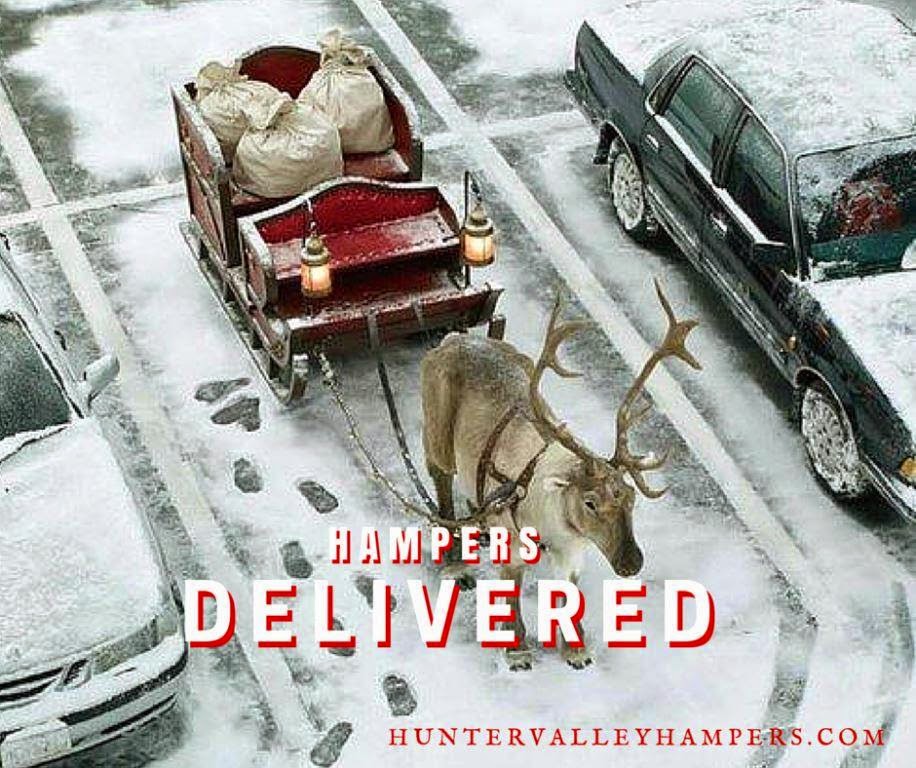Welcome to Christmas 2015 - and from Kacy and I would just like to thank you for popping by our blog and making the time to explore our little corner of the web! It's really great to have you here!
First, I'd like to share with you how much of a roller coaster 2015 has been! We have been developing new relationships with some exciting new suppliers (stay tuned) and as you may have noticed the website has evolved to a newer, fresher format.
It has been great to get away from 2014, and experience a completely new re-invention of the brand and the business. Things are definitely on the up and it is just a good feeling to have all that growth and personal exploration behind us!
Moving on - today I am sharing some interesting facts about the psychology of Christmas. I hope you find it interesting and take some value from it.
Giving gifts at Christmas in 2015 is such a subtle blend of timing, finding the right gift, and making the effort to connect to build a relationship with the recipient.
But it is not always so simple - I often see people being easily offended at what is otherwise a totally acceptable gift. And in many cases this is entirely not the fault of the gift choice or the gift giver - but instead the person who is taking offense in the first place.
Here I am sharing the best advice and tips and hints for the psychology behind gift giving and how to make your Christmas present giving in 2015 the
most meaningful and successful ever. And, of course, we suggest you take the time to choose a gourmet hamper for your Christmas gift.
Adrian Furnham Ph.D asserts that "The basic trouble is that gift-giving is "showing" rather than "telling" what you think about others. Gifts are one of the ways in which the pictures that other have of us, in their minds, are transmitted materialistically. As a gift-giver, one needs to be sufficiently socially aware to know what to give to whom and when, to have confidence in one's tastes and to know that one's motives will be correctly interpreted."
This concept is most clearly demonstrated at Christmas time, when as a corporate gift giver you have the responsibility to reach out and connect with multiple clients across diverse backgrounds. Don't think that you can send them all a similar present and they will find themselves similarly delighted with the gift hamper you have chosen for them.
It comes down to making it clear that you have made the choice for a gift basket from a point of view of goodwill and sharing and that this is the main consideration.
Furnham distinguishes five key features of gifts at Christmas time and how this impacts on the psychology of the giver and receiver of the present.
1. Personal History: Gifts that have nostalgia value are very special. They may be an heirloom, or have been owned by a famous person. Heirlooms are likely to acquire a sort of sacred status if carefully restored. But they may equally signify a past occasion shared by the giver and recipient. They may represent a place, an occasion, or an event shared by the two that has special meaning. Souvenirs with special significance.
2. Sacrifice: Some gifts, such as hand-crafted items, take considerable time and effort to produce. The hand-carved, sewn, embroidered or painted item may be of limited monetary value, but of enormous personal value to the recipient.
3. Surprise: The unexpected gift is special and valued precisely because it was not anticipated. The surprise might relate to when the gift is given, how it is given, or by whom. Brides describe gifts selected from a wedding list as "cold" because they lack spontaneity.
4. Helping/cheering up others: When a gift is given with the express wish to cheer or help, it is often thought of as extremely thoughtful and useful. It is an index of care; a substitute for being there.
5. The "perfect thing": The better people know each other, in terms of values, personality, humour and hopes, the more special and subtle they can be in choosing the perfect gift. A perfect gift is the one the recipient really wants, enjoys and appreciates, and possibly would not buy for him or herself. In short, ideal gifts are those that are still treasured after many years. The perfect gift is wanted, needed, deserved and appreciated. It has to be very thoughtfully and carefully chosen.
Maren Hennemuth agrees, saying that "Christmas is just as important for adults. Human beings are social animals, and they need rituals" She goes on to quote Peter Walschburger who sees Christmas as "it changes our profane daily existence into a sacred fundamental experience."
Giving money instead of a gift is not recommended. "When I give somebody 50 euros, my relationship to this person is thus worth the equivalent of 50 euros," he explains. "But what does that mean, having a relationship worth 50 euros? Is that a lot or is it very little?"
You can check out some amazing Christmas podcasts here on the Psychology of Christmas.
For Christmas 2015, it is all about giving quality gifts handmade in Australia with delivery included.
At Christmas Hunter Valley Hampers, you can expect personal attention, one on one order focus, and a perfect experience of gift delivery for your reception. The corporate gift giving specialists have been making luxury hampers and gift baskets since 1988 and will create a m memory for the ages.
 |
| Gourmet Christmas Hampers |
It has been great to get away from 2014, and experience a completely new re-invention of the brand and the business. Things are definitely on the up and it is just a good feeling to have all that growth and personal exploration behind us!
Moving on - today I am sharing some interesting facts about the psychology of Christmas. I hope you find it interesting and take some value from it.
**^^'88'^^**
Giving gifts at Christmas in 2015 is such a subtle blend of timing, finding the right gift, and making the effort to connect to build a relationship with the recipient.
But it is not always so simple - I often see people being easily offended at what is otherwise a totally acceptable gift. And in many cases this is entirely not the fault of the gift choice or the gift giver - but instead the person who is taking offense in the first place.
Adrian Furnham Ph.D asserts that "The basic trouble is that gift-giving is "showing" rather than "telling" what you think about others. Gifts are one of the ways in which the pictures that other have of us, in their minds, are transmitted materialistically. As a gift-giver, one needs to be sufficiently socially aware to know what to give to whom and when, to have confidence in one's tastes and to know that one's motives will be correctly interpreted."
This concept is most clearly demonstrated at Christmas time, when as a corporate gift giver you have the responsibility to reach out and connect with multiple clients across diverse backgrounds. Don't think that you can send them all a similar present and they will find themselves similarly delighted with the gift hamper you have chosen for them.
It comes down to making it clear that you have made the choice for a gift basket from a point of view of goodwill and sharing and that this is the main consideration.
Furnham distinguishes five key features of gifts at Christmas time and how this impacts on the psychology of the giver and receiver of the present.
1. Personal History: Gifts that have nostalgia value are very special. They may be an heirloom, or have been owned by a famous person. Heirlooms are likely to acquire a sort of sacred status if carefully restored. But they may equally signify a past occasion shared by the giver and recipient. They may represent a place, an occasion, or an event shared by the two that has special meaning. Souvenirs with special significance.
2. Sacrifice: Some gifts, such as hand-crafted items, take considerable time and effort to produce. The hand-carved, sewn, embroidered or painted item may be of limited monetary value, but of enormous personal value to the recipient.
3. Surprise: The unexpected gift is special and valued precisely because it was not anticipated. The surprise might relate to when the gift is given, how it is given, or by whom. Brides describe gifts selected from a wedding list as "cold" because they lack spontaneity.
4. Helping/cheering up others: When a gift is given with the express wish to cheer or help, it is often thought of as extremely thoughtful and useful. It is an index of care; a substitute for being there.
5. The "perfect thing": The better people know each other, in terms of values, personality, humour and hopes, the more special and subtle they can be in choosing the perfect gift. A perfect gift is the one the recipient really wants, enjoys and appreciates, and possibly would not buy for him or herself. In short, ideal gifts are those that are still treasured after many years. The perfect gift is wanted, needed, deserved and appreciated. It has to be very thoughtfully and carefully chosen.
Maren Hennemuth agrees, saying that "Christmas is just as important for adults. Human beings are social animals, and they need rituals" She goes on to quote Peter Walschburger who sees Christmas as "it changes our profane daily existence into a sacred fundamental experience."
Giving money instead of a gift is not recommended. "When I give somebody 50 euros, my relationship to this person is thus worth the equivalent of 50 euros," he explains. "But what does that mean, having a relationship worth 50 euros? Is that a lot or is it very little?"
You can check out some amazing Christmas podcasts here on the Psychology of Christmas.
For Christmas 2015, it is all about giving quality gifts handmade in Australia with delivery included.
At Christmas Hunter Valley Hampers, you can expect personal attention, one on one order focus, and a perfect experience of gift delivery for your reception. The corporate gift giving specialists have been making luxury hampers and gift baskets since 1988 and will create a m memory for the ages.








